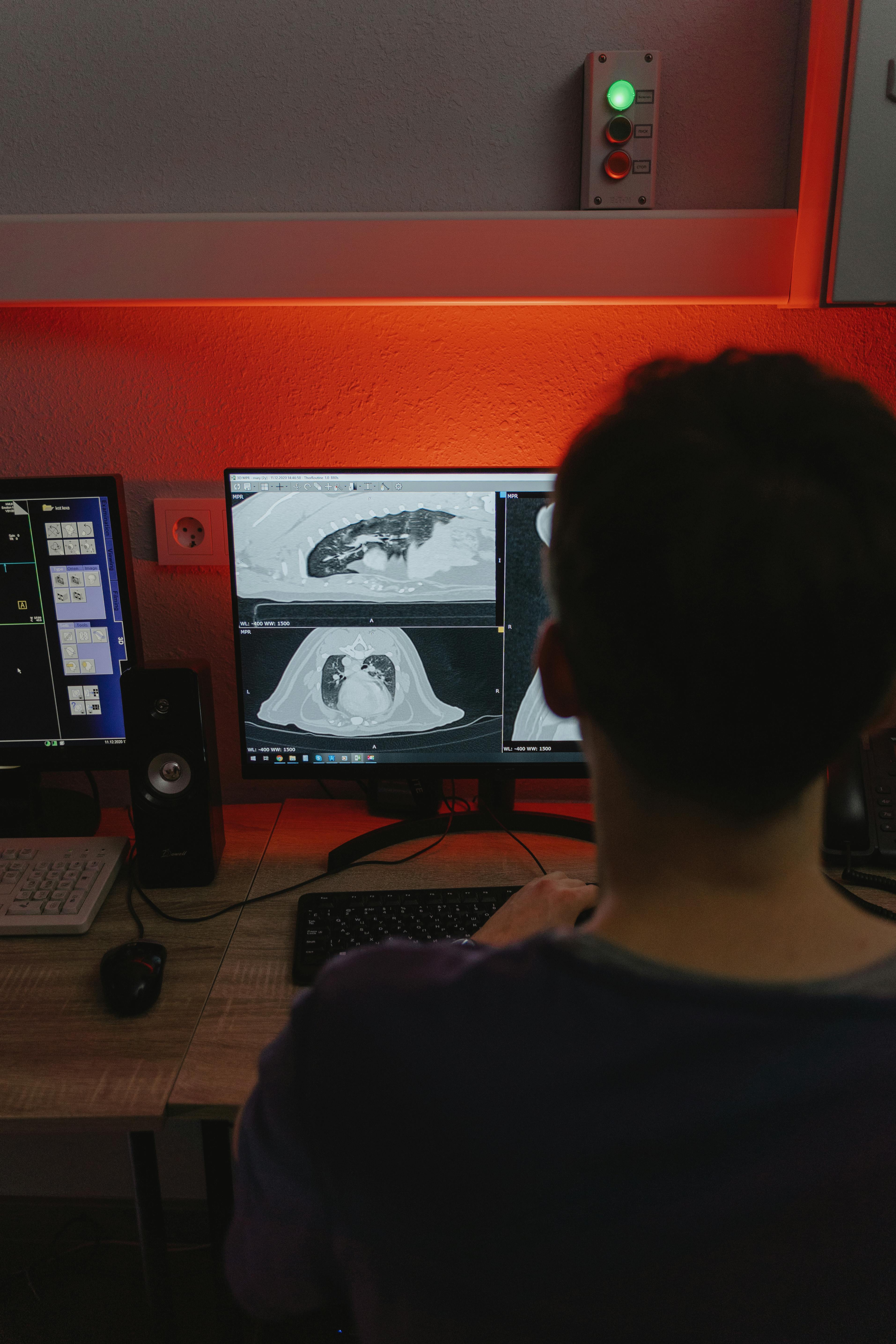AI in Medical Imaging | Implications for Healthcare | Looking Ahead | Conclusion | References
In 2024, the integration of Artificial Intelligence (AI) in medical diagnostics has become a major breakthrough in healthcare. AI’s ability to analyze vast amounts of data quickly and accurately is transforming the way healthcare professionals diagnose diseases, especially in medical imaging fields such as radiology and pathology. This revolution is leading to earlier, more accurate diagnoses, improving patient outcomes, and even reducing healthcare costs.
AI in Medical Imaging: A Major Breakthrough
One of the most impactful areas where AI is making a difference is in medical imaging. Traditionally, medical images like X-rays, CT scans, and MRIs are analyzed manually by radiologists. However, AI algorithms can now assist by identifying patterns and anomalies that are sometimes difficult for the human eye to detect. This is especially useful for diseases like cancer, where early detection can be critical to survival.
Google Health’s AI for Breast Cancer Detection
One of the most significant developments in AI diagnostics has come from Google Health, which unveiled a new AI model designed for breast cancer detection. This AI tool has demonstrated an accuracy rate that matches and, in some cases, exceeds that of human radiologists. By analyzing mammograms, the AI model reduces false positives and false negatives, which are common in breast cancer screenings.
A 2024 study published in Nature revealed that the AI model was able to reduce false negatives by 9.4% and false positives by 5.7% compared to traditional human assessments . This not only improves the chances of detecting cancer earlier but also reduces unnecessary follow-up procedures for patients who are incorrectly diagnosed.
DeepMind’s AlphaFold and Its Impact on Drug Discovery
In addition to diagnostics, AI is also making strides in drug discovery. DeepMind’s AlphaFold, a cutting-edge AI system, has revolutionized the field by accurately predicting protein structures. Understanding protein folding is key to developing drugs for diseases like Alzheimer’s, Parkinson’s, and certain types of cancer.
AlphaFold has dramatically sped up research that would typically take scientists years to achieve. By providing detailed 3D models of protein structures, it allows researchers to identify how diseases function at a molecular level, opening up new avenues for targeted drug therapies.
Implications for Healthcare
The introduction of AI in medical imaging and diagnostics has several important implications for the future of healthcare:
- Increased Accuracy: AI tools have been shown to be more accurate in diagnosing certain conditions, especially when combined with human expertise. This can lead to earlier and more precise diagnoses, which are critical for diseases like cancer.
- Faster Diagnosis: AI models can analyze images and data in a fraction of the time it takes for a human, leading to faster diagnoses. This is particularly beneficial in emergency situations where timely treatment is essential.
- Reduced Costs: By reducing false positives and unnecessary procedures, AI helps lower healthcare costs, making advanced diagnostic tools more accessible to patients and healthcare systems globally.
Looking Ahead: AI’s Expanding Role in Healthcare
The future of healthcare is increasingly driven by AI, especially in diagnostics and personalized care. AI has already made significant strides in medical imaging, improving accuracy and speed in detecting diseases. If you’re interested in learning more, check out our post on AI Revolution in Diagnostics: A Game-Changer for Medical Imaging.
AI is also enhancing wearable technology, allowing devices like smartwatches to monitor health metrics in real-time. Explore how these gadgets are revolutionizing personal health in Wearable Tech: Your Health’s New Best Friend.
Another exciting frontier is telemedicine, where AI plays a crucial role in improving remote care. Want to see how AI is advancing remote healthcare delivery? Read our post on Telemedicine: The Future of Remote Healthcare Delivery to learn more about this transformative trend.
Conclusion
The AI revolution in diagnostics represents a major leap forward in the medical field. From enhancing breast cancer detection to accelerating drug discovery, AI is proving to be a game-changer. As these technologies continue to evolve, they will undoubtedly play an even more significant role in improving global healthcare, saving lives through earlier diagnoses and more effective treatments.
References
- “Artificial Intelligence for Breast Cancer Detection.” Google Health. Retrieved from: Google Health
- “DeepMind’s AlphaFold and its Impact on Drug Discovery.” Nature, 2024.

